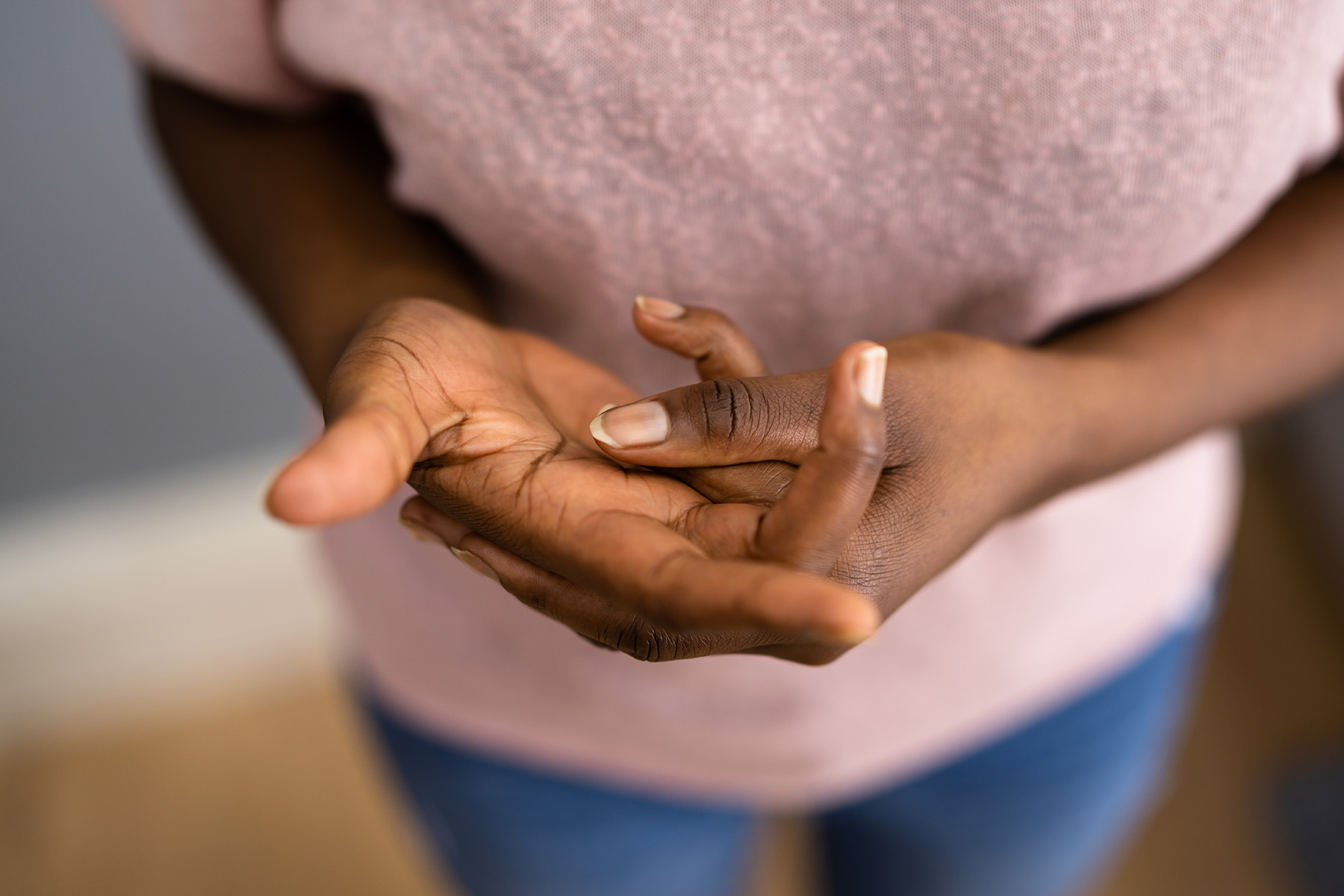Snap, Crackle, Pop: Why Do Your Joints Crack?

Maybe you hate the sound of knuckle, knee, and back cracking. Or, you can’t stop cracking your joints because it hurts so good. Is this habit damaging your joints? Can cracking your knuckles enlarge them and lead to arthritis?
What’s that popping sound?
We aren’t exactly sure what causes knuckles and other joints to make an audible “pop,” but doctors believe that cracking your joints temporarily creates space to release harmless gas like a bubble popping. Sometimes, this happens on its own, without intentionally pulling or pushing the joint.
If you’d like to learn more, check out this study that created a mathematical model of a knuckle, which helped confirm that the popping noise comes from bursting gas bubbles. It takes some time for the gas to return to that joint, so you typically can’t immediately pop it again.
“In some other cases, the cracking that we hear may actually be bone contacting bone, rather than this somewhat mysterious release of gas bubbles within our joints,” says Seth D. Dodds, M.D., an orthopedic surgeon and division chief for hand surgery with the University of Miami Health System.
The degeneration of the joint itself causes this type of grinding/rubbing and cracking. However, the “crack” of a cracking knuckle itself does not cause further wear and tear on the joint.
Why does cracking your joints feel good?
You may sometimes (or often throughout the day) get the sensation that you “need” to crack all your knuckles or a particular joint in your body, like an elbow or neck. Once you do, you experience relief, like some tension or stiffness has been released.
This temporary, somewhat pleasurable feeling is caused by a change of pressure in the joint, Dr. Dodds says.
“You’re getting to the end range of your joint motion or perhaps going just beyond it. You’re going a little bit further than what the joint wants to allow.”
This may be why a chiropractic alignment can instantly increase mobility and relieve stiffness, yet those symptoms soon return.
You may experience the impulse to crack your knuckles if you’ve been typing, playing an instrument, or gardening for a while. Maybe you want to twist your spine to crack your back after you’ve been sitting for a prolonged time.
“We have a number of reflexes that go from our joints directly to our brain,” Dr. Dodds says. “The feeling that you want to crack your joints is perhaps a sense that the joint position needs adjustment. That joint positioning reflex is something that’s difficult to control, just like when you hit the patellar tendon beneath your kneecap, and the reflex causes you to uncontrollably straighten your leg.”
Is all of this bad for your joint health and mobility?
As long as you’re not pulling or pushing your joint to the point of pain or dislocation, there’s no evidence that joint cracking is bad for you. Researchers have found no connection between habitual knuckle cracking, for example, and arthritis of the hand, enlarged knuckles or hand pain.
“When I was a medical student, I read a letter to the editor in our journal of hand surgery,” Dr. Dodds says. “A hand surgeon said that his mother told him that knuckle cracking would cause arthritis and severe joint pain. So, he decided to do an experiment on himself. He cracked all of the major knuckles in his dominant hand every single day, and he cracked none of the knuckles in his non-dominant hand every single day. At the time of writing the letter, he was already in practice for many years and he stated that both of his hands felt fine.”
In his paper, “Does Knuckle Cracking Lead to Arthritis of the Fingers?,” this doctor, Donald Unger, M.D., reported that after 50 years of cracking knuckles on only one of his hands, there were no differences in arthritic symptoms. “This is a pretty good experiment that shows cracking one’s knuckles probably isn’t going to cause anything overly harmful,” Dr. Dodds adds.
“I think knuckle cracking is harmless,” Dr. Dodds says. “Stiffness is something that we all get over time, and stretching your joints to maintain your mobility is probably a good idea.”
If you’re experiencing joint pain, swelling, redness or immobility (locked joints), see your primary care physician or an orthopedic specialist.
Dana Kantrowitz is a contributing writer for UHealth’s news service.
Tags: Dr. Seth Dodds, joint snap, knuckle crack, orthopedic care in Miami
